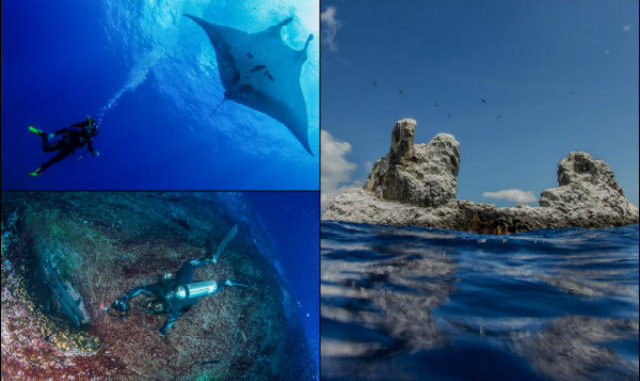
MEXCIO CITY – The Mexican government has created a large marine reserve around a group of islands home to hundreds of species including rays, whales and sea turtles.
Mexico’s President Enrique Pena Nieto designated on Friday the Revillagigedo Archipelago, located some 390 km (242 miles) southeast of the Baja California peninsula, as a national park.
The Revillagigedo Archipelago is a group of volcanic islands off the country’s south-west coast.
The archipelago is sometimes known as the Galapagos of North America, in reference to the volcanic Ecuadorean islands whose abundance of endemic species inspired biologist Charles Darwin.

With a protection zone of 57,000 square miles (150,000km), it has become the largest ocean reserve in North America.
The move will mean all fishing activity will be banned, and the area will be patrolled by the navy.
It is hoped the move will help populations hit by commercial fishing operations in the area recover. It will also forbid natural resources being extracted from the land or the building of new hotel infrastructure.
Sitting on the convergence of two ocean currents, the islands are a hub for open water and migratory species.

It has hundreds of breeds of ocean wildlife, including humpback whales that use the shallow and coastal areas around the islands for breeding.
Last year the Pacific Ocean site was named as a UNESCO world heritage area.
María José Villanueva, the director of conservation of WWF in Mexico, described the move as an “important precedent” to the rest of the world, according to local media.
Chile set to create marine coastal protected area in Tierra del Fuego
It follows a similar move by Chile, which created an even bigger ocean reserve in 2015.



